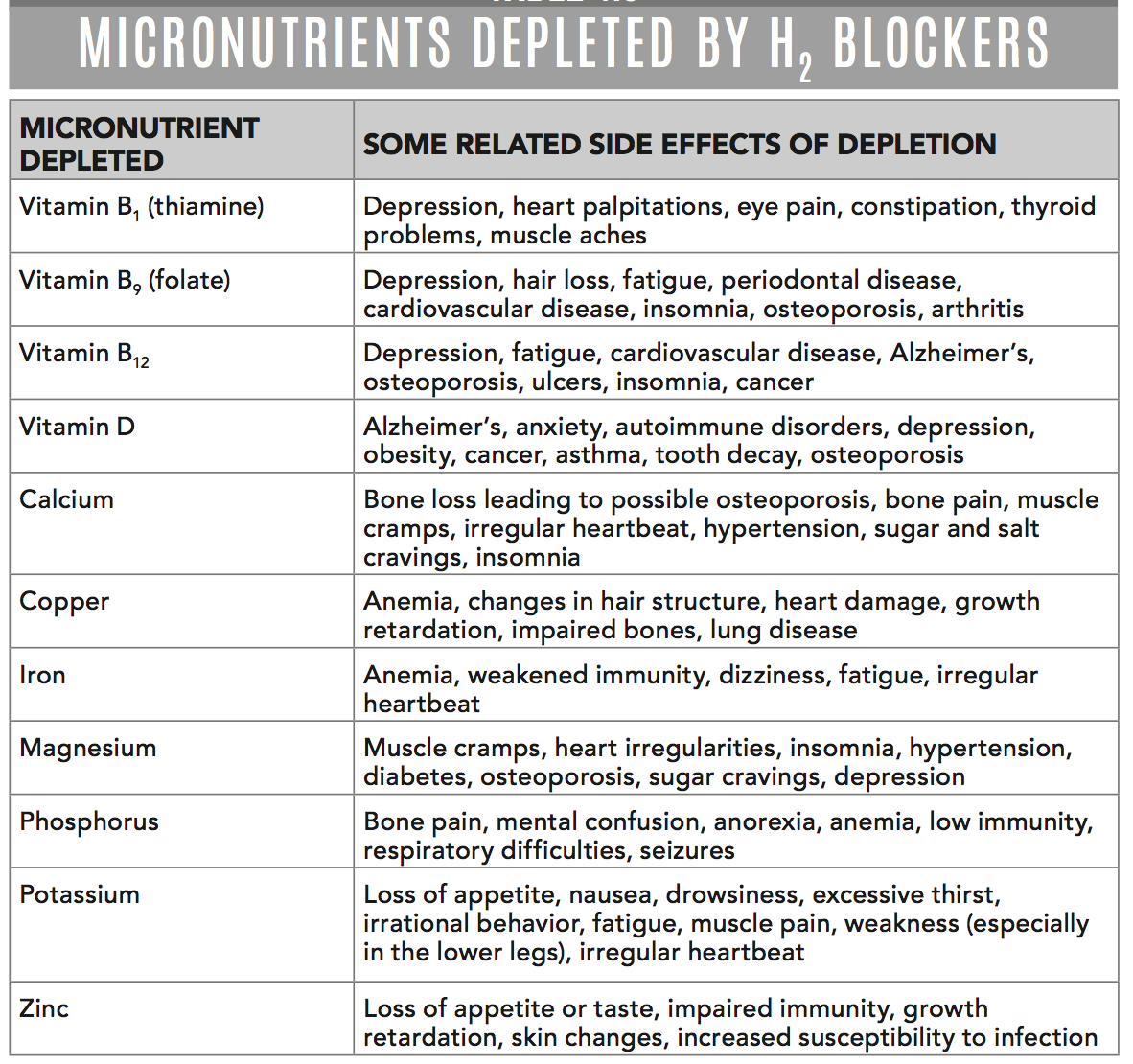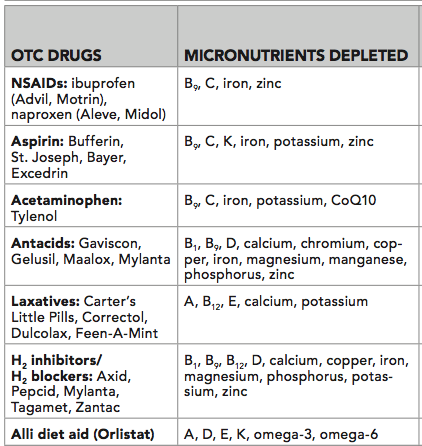We are sharing some information on over-the-counter drugs, and how they may be affecting your body's ability to absorb nutrients. Take a look…
Have you ever wondered how an antacid works in your body? Do you take aspirin at the first sign of a headache? Do you rub hydrocortisone cream on your inflammed skin to treat your minor rash? How many times a week do you use an over-the-counter drug? While the number of people taking prescription medications is high, millions more use their non-prescription OTC counter-parts.
Over-the-counter drugs are our second everyday micronutrient depleter in the medication group. Just because the pills you pop are purchased over the counter at a drugstore doesn’t mean you are out of the woods. Chances are you never thought medications that are so convenient, and so readily available, could be dangerous to your health. Wrong! In fact, while most Americans take prescription meds, the number popping over-the-counter drugs is much, much higher. These nonprescription medications—such as aspirin, acetaminophen, non-steroidal anti-inflammatory drugs (NSAIDs), antacids, laxatives, and H2 blockers (found in heartburn medications)—may seem harmless, but they also work to deplete your vital micronutrients in ways you likely have not imagined. These popular medications can deplete a wide variety of micronutrients and can be some of the most overlooked Everyday Micronutrient Depleters.
Let’s examine how a simple case of heartburn may cause depletions leading to far more serious conditions. One class of medications commonly purchased at the local drugstore to treat heartburn is H2 blockers. These include brand names such as Axid, Pepcid, Tagamet, Zantac, and others. Research indicates that these medications can deplete vitamins B1, B9, B12, and D, as well as all of the following minerals: calcium, copper, iron, magnesium, phosphorus, potassium, and zinc. See Table 4.3, below, to discover how the “innocent” act of taking this type of OTC drug may be affecting your health.

Did you happen to notice that many of the conditions on the list are in fact much worse than the heartburn itself? Again, OTC medications act similarly to prescription drugs: They deplete essential micronutrients and open the door for future illnesses and diseases that are often much worse than the condition you took the OTC medication to get rid of. While OTC medications may be easier to acquire, they are in no way any less dangerous where micronutrient depletion is concerned.
You can stop the burn! Simply take digestive enzymes before meals until the situation is under control. Truth be told, heartburn is almost always a case of too little acid for proper digestion, not too much. Antacids not only deplete you of your essential micronutrients, but they also don’t address the real problem at all. If the condition persists, add in acid by taking betaine HCL with pepsin (available at health food stores). Caution: Do not take with aspirin, ibuprofen, or other non-steroidal anti-inflammatory drugs, as this could damage the lining of your gastrointestinal tract.
How many times have you heard that it could be good for your heart to take an aspirin every day? While this may help your heart, it is also depleting folic acid, vitamin C, iron, and potassium. Are you taking any of the over-the-counter medications? Which micronutrients could they be depleting from your body? Could avoiding these depletions increase your personal micronutrient sufficiency and bring you closer to achieving optimal health? Just like their prescription drug counterparts, the OTC medications you take deplete micronutrients. Here is a closer look at specific medications and what micronutrients they deplete:

As you can see, many over the counter medications can negatively affect micronutrient sufficiency, we urge you to share this information with your family and friends!
SHOP

